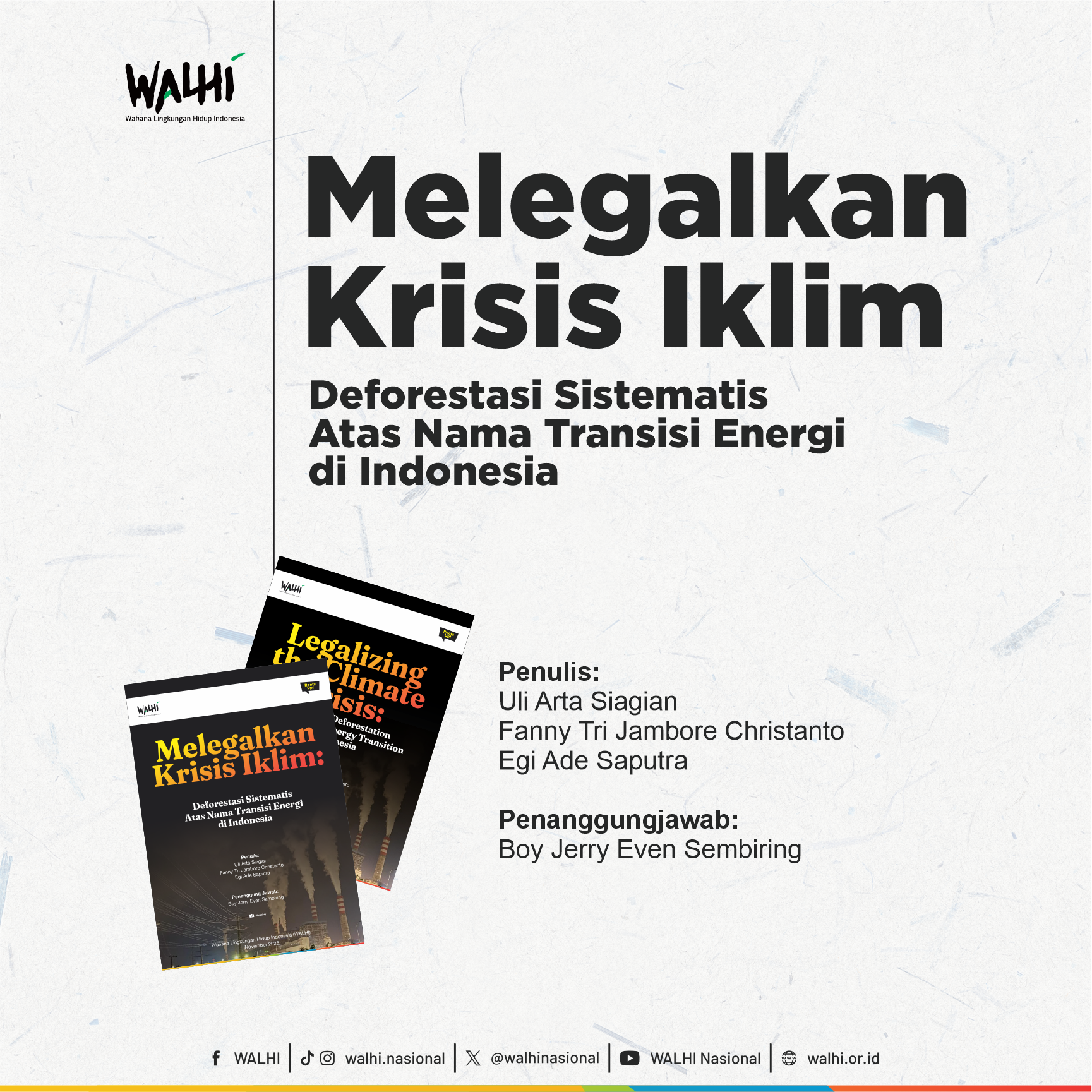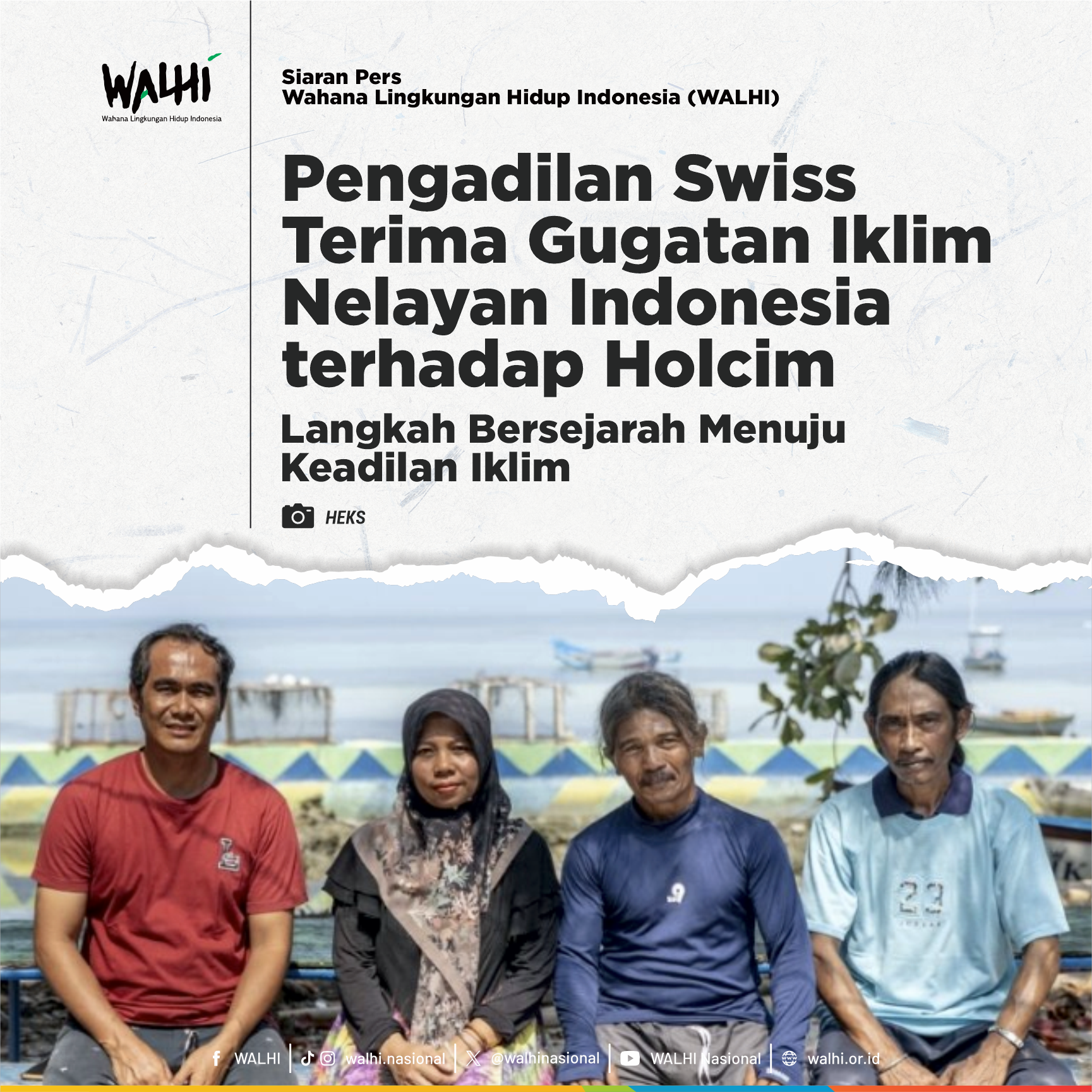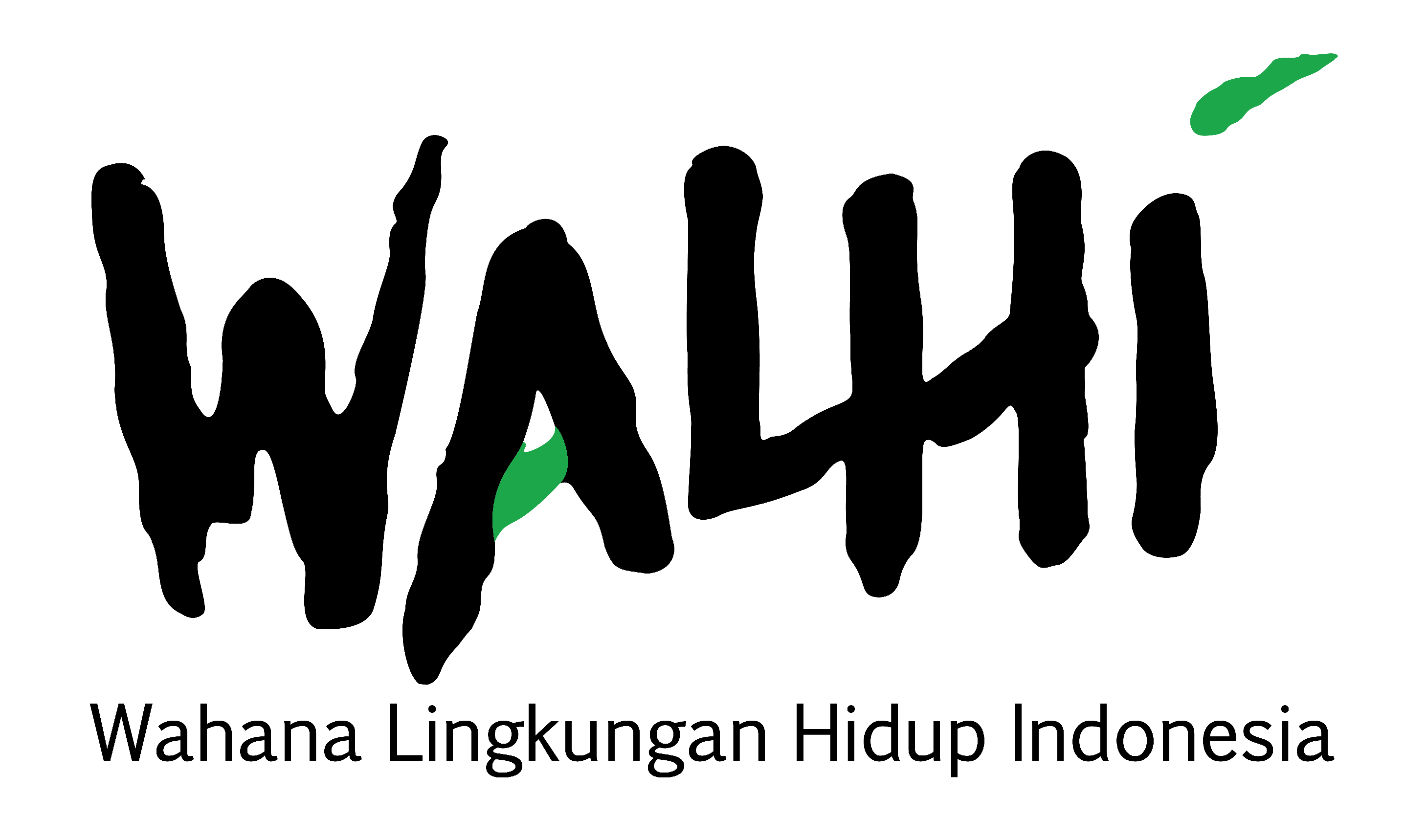Before talking about the urgency of palm oil plantation moratorium policy, it is better to take a look at the implementation of this policy from time to time until the third extended moratorium since 2011 through Presidential Instruction No 10/2011 and Presidential Instruction No 6/2013. Based on the study conducted by Wahana Lingkungan Hidup Indonesia (Walhi) in collaboration with Partners in four provinces, which are Riau, Jambi, South Sumatera, and Central Kalimantan, in 2015, it was found out that there were several problems in the implementation of moratorium policy. From the four provinces, the total moratorium area has decreased, the permit given is still going on and even the operational method becomes almost perfect prior to the election of regional head. During the moratorium period, the total of liscence issuance reached 11,362,981 hectares, the release of forest area for plantation 1,677,217.52 hectares, timber through licensing scheme for timber forest product utilization permit in plantation forest (IUPHHK-HT) 1,725,467 hectares, license to borrow forest area 193,896 hectares, and the release of forest area to fulfil the request of local administrative area in the form of area for other purposes (APL) 7.7 million hectares in 20 provinces. The total moratorium area is decreasing. Moratorium does not decrease the number of new license given to the concession owners.
The write-off of the map and the already-done regime are the argumentation in deciding this policy, in national and regional level. What about the implementation of Presidential Instruction No 8/2015 during the current government era? According to the analysis on the urgency of palm oil plantation moratorium policy in Indonesia done by Walhi in collaboration with Partners, TuK Indonesia, Sawit Watch, and Auriga in 2017, there is no significant changes from the implementation of the previous presidential instruction. The moratorium policy has not decreased the power structure over natural resources, in particular in palm oil plantation on big scale which is ruled by certain parties having power in economy. In the news on several mass media, the Ministry of Environment and Forestry admits that during the implementation of presidential instruction regarding moratorium, there has not been any reformation in the management of forest and peat land. In other words, for the past two years, the presidential instruction on moratorium means nothing compared to the corporates and political elite powers destroying the nature for many years of governmental regimes. The healing time for the nature is not equal to the damaging phase caused by a permit regime. This is the point in which the urgency to strengthen moratorium policy exists.
Walhi offers the strong moratorium policy, which is by not giving any licences to timber, palm oil, and mining industries for at least the next 25 years while the government actively reviews and audit the existing licenses suspected violate the laws and regulation and commit to corruption crimes. Considering that the nature needs more time to heal after being exploited for such a long time – in addition to the settlement of forest area border matter- synchronizing several rules and derivative regulations that is urgent as well. The most important thing is to synchronize the government’s work across sectors as well as between state and local government with the local authority being ruled in provincial level. Within 25 years, with a clearer road map, the objectives are expected to be more tangible. Challenges and hopes Since the expiry of Presidential Instruction No 8/2015 regarding Postponing of New Licence Issuance and Completion of Management of Primary Forest and Peat Land on 13th May 2017, until recently there has been no assurance about the issuance of extended moratorium policy. This situation raises many questions, such as why the moratorium policy has not been published yet, and what are the challenges on that matter. As a matter of fact, public acknowledges through the news in mass media that since 2016 the draft on palm oil plantation moratorium policy has been on the President’s desk waiting to be signed. The effort of reviewing the material in Law No 32/2009 regarding Environmental Protection and Management and Law 41/1999 regarding Forestry on the crucial articles shall be the remark for the President that the power of corporates plays big role fighting systematically against the effort of the state to enforce the law against corporates crime and the effort of the state to protect the nature.
It is very challenging for the President because corporation has entered the parliament to support the RUU Perkelapasawitan, which currently is being discussed by the parliament. The political intervention is very strong and gencar dilakukan by the power of corporation. We are expecting good news from the Presidential Palace as well as the political movement from President Jokowi. Hopefully, this time the President will use the moment in strengthening moratorium policy through presidential regulation. This policy in fact supports other political commitments of the President, which is the just and equal economy development by decreasing the power gap of natural resources management that has been ruled by big scale corporates, and give it to the people as the acknowledgement and protection toward the people’s managing land. Will the President use this moment by strengthening moratorium policy for the more just and everlasting natural resource management? Khalisah Khalid Head of Campaign and Network Development Department Published in Kompas 10th July 2017






